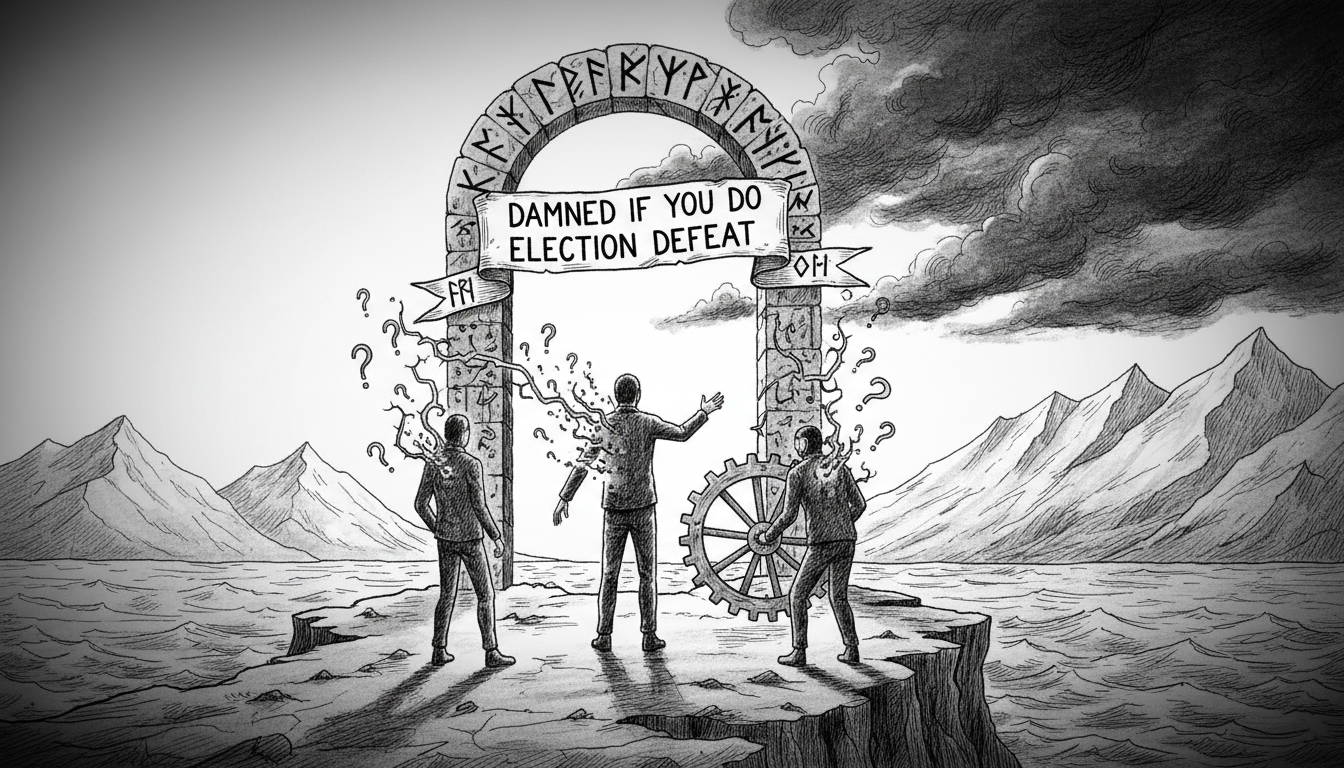Norway's Conservative Party confronts a painful political reality in a new internal report analyzing their disastrous election performance. The evaluation committee delivered blunt criticism about strategic failures that led to the party's historically poor 14.6 percent result.
The report states the party became blinded by favorable opinion polls early in the campaign, mistakenly attributing them to their own efforts rather than recognizing they reflected a weak government. Party leader Erna Solberg acknowledged the findings when questioned at Parliament, agreeing with the report's main conclusions.
Solberg described the party's predicament as a classic damned if you do, damned if you don't situation. She noted that earlier this year, critics complained she was too invisible. The party then pushed other Conservative profiles forward to compete with the government's numerous visible ministers. Before summer, the criticism was that Erna needs to be more present, she explained, referencing their conscious strategy to build multiple party faces.
The internal assessment identifies several critical failures. The Conservative Party appeared too system-loyal and presented policies that seemed like extensions of their previous government work. Voters perceived the party as lacking vision and direction for Norway's future. The evaluation states the party failed to understand the times we were living in and didn't provide answers people believed in.
Solberg repeated her election night analysis that the Conservatives became squeezed between the Progress Party and Labour Party. She acknowledged the party became too focused on their own issues and failed to anticipate that government waste and efficiency would become central election themes, despite having relevant policies.
The report highlights the double-edged sword of Solberg's leadership. While having a popular and well-liked party leader is extremely important, the campaign demonstrated how vulnerable a party becomes when it centers so heavily around one person. The Conservative Party evaluation committee consisted of seven prominent party members including mayors and youth leaders.
Notably absent from the report was any mention of Solberg's stock trading scandal. When asked about its impact, Solberg acknowledged it probably affected some voters' trust in her over time. She distinguished it from what she called the government's budget scandal, accusing them of deliberately telling voters something untrue during the campaign.
Despite the harsh assessment, the report noted several positive campaign elements. The intensive ground operation achieved its door-knocking and voter contact goals. Solberg received extensive positive media coverage and performed well in television debates. The economic platform, including major income tax relief for all, was very good but came too late. The youth wing achieved historically good results in school elections.
Norwegian political analysts note this represents a critical moment for the center-right opposition. The Conservative Party must now rebuild without its most recognizable figure when Solberg steps down at the party's national convention in February. The challenge involves maintaining party unity while developing new leadership and a refreshed political vision that resonates with voters concerned about economic management and public services.
The dilemma Solberg described reflects broader challenges facing center-right parties across Europe. Balancing leader visibility with collective party strength, responding to populist challenges from the right, and maintaining policy distinctiveness after leaving government all require careful navigation. How Norway's Conservatives address these issues will determine whether they can regain their position as a leading political force.

